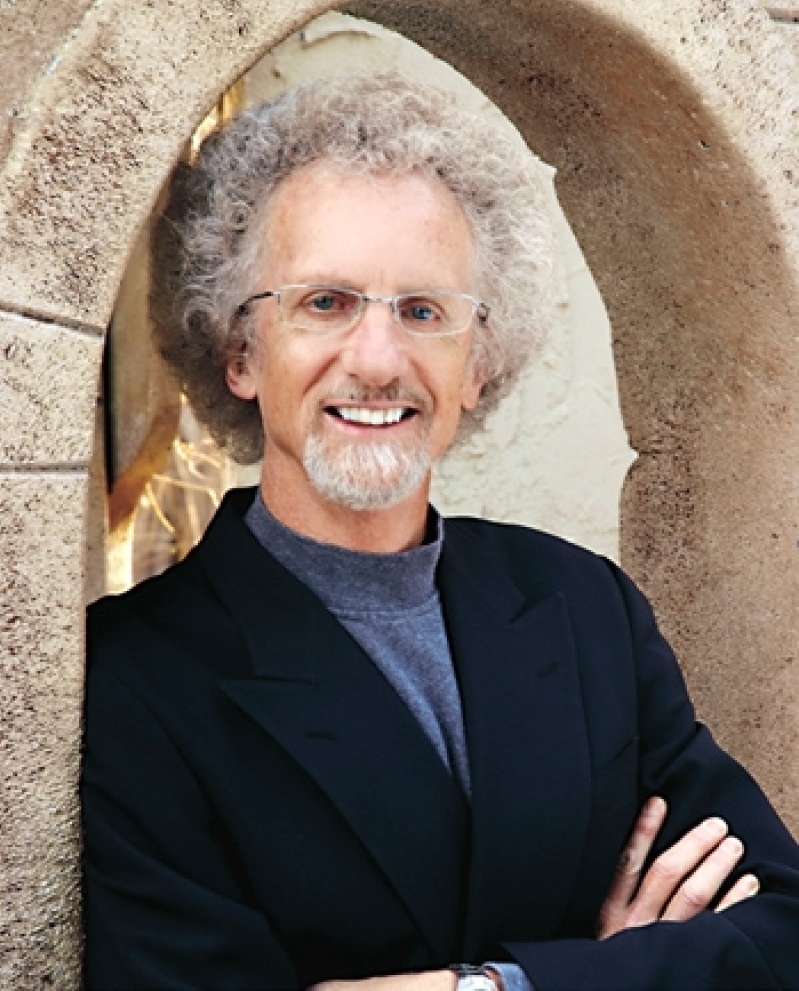
Bestselling author Philip Yancey remembers a time when one Christian leader, whose name many believers would recognize, was going through one hard time after another.
His teenage kids were regularly getting into trouble and he was diagnosed with a rare form of cancer.
"I have no problem believing in a good God," Yancey recalls the man saying during a small group discussion. "My question is, ‘What is God good for?’"
It's a question Yancey has also pondered, especially during encounters with women struggling to feed their children, sex slaves or oppressed Christians in other countries.
"What can we count on God for? What difference does it make whether you believe or not? What difference does it make at a time of testing and challenge?" he asks.
The Atlanta native, whose books have sold more than 15 million worldwide, has had some theological training but he doesn't pretend to know the answer. In fact, he's famous for addressing commonly raised questions honestly, from an investigative standpoint rather than an authoritative one.
He took the same approach, as a journalist, when trying to provide some form of answer to the question "What good is God?" – which is also the title of his newest book.
Of course as a Christian, when he was visiting with people around the world who knew only poverty and shame or who were enduring emotional or physical pain, Yancey had to at some point stand up and declare the hope that he had in God.
But his own faith seemed to have gone through some transformation as he came away from the ten travels that he recounts in his book more convinced that faith really does matter and does make a difference.
That's easy to say when he hears Hilda (whose name was changed in the book), a Costa Rican, talk about how she was sold by her mother at the age of four into sexual slavery and the renewed life she is now living because of a Christian's helping hand.
But when he's back in America, where the news of the day is Lindsay Lohan and where more money is spent on beauty products than on education, it's a lot harder to conclude whether faith really does matter.
"Every day, the broader [American] culture is tempting me to think about 'Am I driving the right car?’ ‘Do I have the right haircut?’ ‘Do I have enough money?’ ‘Am I wearing the right clothes?’ ‘How am I coming across?’'" Yancey said in an interview with The Christian Post.
"Really, we should be asking ourselves, 'How are we coming across to God?'"
Interestingly, Yancey says the hardest place to be a Christian is in a place like the United States – "a nice prosperous country with a lot of entertainment options."
The sophisticated University of Cambridge also ranks up there as one of the hardest places to live out the Christian faith (harder than communist China or multi-faith India, Yancey notes).
Grace, he told CP, is a free gift but to receive it, you have to have your hands open. And a lot of people don't have their hands open.
"There's something they're grasping because there's a lot of things to grasp in a prosperous country," he said.
In his book, Yancey acknowledges how Christianity can be good for society but also notes how, as that society achieves a level of comfort and prosperity, its citizens feel less need for religious faith.
“They live off the moral capital of the past. Meanwhile God quietly moves on, to a place that senses more need," the author states.
Yancey makes it clear that his Christian identity comes not from how Jesus' way benefits society but from his belief in the faith that he holds to be true.
"If true, it should create the conditions in which human life works best," the author says. And if true, "it must have some effect" on all the distinct groups he encountered in his travels.
So what good is God? Yancey stresses that it's an open question to which the answer God has invested in his followers.
"We are the ones called to demonstrate a faith that matters to a watching world," he writes in What Good is God?
Yancey said if someone in Africa was asked what a Christian is, they may answer, "Well, I'm not sure, but there's this hospital van that comes here once a month and has a cross on it and they treat our wounds."
Another might say, "Well, I'm not sure but there are these folks called World Vision and they dug a well for my village and now we have something to drink.”
"And then others will tell about churches that come in and help transform a society by speaking against drunkenness and corruption," Yancey added.
What good is God?
“He rescued me from sex slavery and drug addiction.”
“God brought me back to life.”
"I wish skeptics like Christopher Hitchens and Richard Dawkins had the same chance to hear stories of transformation from social outcasts who hit the very bottom and now credit God for the strong grace that saved them in the most literal sense," Yancey wrote.







